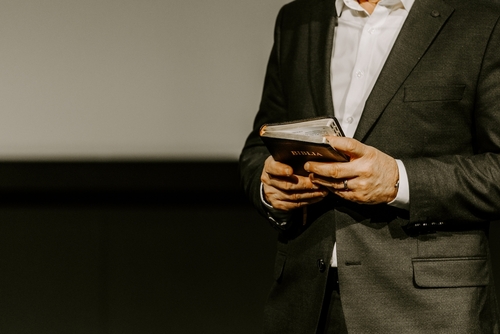In a tense moment, Bishop Mariann Budde delivered a pointed critique of President Trump and Vice President JD Vance, highlighting the ideological rifts of today. Her politically charged sermon at the National Prayer Service stirred controversy as she criticized both leaders.
Bishop Budde’s Sermon
Mariann Budde’s sermon at the National Prayer Service was aimed at President Trump and Vice President JD Vance, urging them to demonstrate mercy toward marginalized groups, including transgender children and immigrants. This public critique emphasized compassion, echoing progressive commentary on inclusivity and social responsibility. Budde’s words were perceived to challenge the administration’s policies and stance, engaging in a broader ideological debate.
This so-called “bishop” consistently votes for candidates advocating abortion, children genital mutilation, men in women’s sports and open borders!
— 💥Hank💥 (@HankishTwitZone) January 22, 2025
How dare she weaponize the pulpit to lecture and insult President Trump with her radical WOKE ideology! Budde is an insult to God! pic.twitter.com/rMUfbcfrNd
Budde invoked Christian principles, urging leaders to exhibit understanding and support for those who might not have documentation but contribute positively to society. Her sermon suggested these communities are often unfairly maligned, promoting a narrative of inclusion and empathy.
Budde is the reason so many who believe in God have stopped attending church. This was not a sermon, but the political hijacking of what should have been a message of hope for the future, and the joyful closure of an otherwise beautiful and historic inauguration. #Bishopbudde pic.twitter.com/nvtuF4umSV
— SeeingRedInABlueState🐕🐾🌞 (@tut_newmexico) January 22, 2025
Addressing Conservative Criticism
The backlash against Budde’s sermon was swift, with critics accusing her of misusing her religious platform to advance a liberal political agenda. The argument presented in several commentaries suggests that Budde distorted Christian teachings for political gain, aligning her messages with current left-wing ideologies. Such actions raise questions about the balance between faith-driven activism and political discourse.
“I ask you to have mercy, Mr. President, on those in our communities whose children fear that their parents will be taken away and that you help those who are fleeing warzones and persecution in their lands to find compassion and welcome here. Our God teaches us to be merciful to the stranger, for we were once strangers in this land. May God grant us the strength and courage to honor the dignity of every human being, to speak the truth to one another in love, and to walk humbly with each other and our God for the good of all people, the good of all people in this nation and the world.” – BUDDE
Budde’s subsequent media appearance on CNN sparked accusations of insincerity. Critics argue her motives were clouded by personal ambitions or political pursuits rather than genuine faith-based concern. This instance feeds into broader discussions about the role of religious figures in political debates.
Ideological Divides in Faith and Politics
Bishop Budde’s actions have broader implications, reflecting trends within the Episcopal Church and similar institutions prioritizing political ideology over traditional doctrines. This shift, critics allege, diverts the church from its original teachings, creating a theological divide within its community.
“Let me make one final plea, Mr. President. Millions have put their trust in you, and as you told the nation yesterday, you have felt the providential hand of a loving God. In the name of our God, I ask you to have mercy upon the people in our country who are scared now. There are gay, lesbian, and transgender children and Democratic, Independent, and Republican families, some who fear for their lives.” – BUDDE.
Ultimately, these encounters highlight the growing polarization within the nation as ideological beliefs continue to shape political and social identities. The friction between religious leadership and conservative values underscores a critical dialogue that defines America’s evolving landscape.

